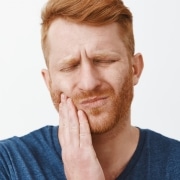What Should You Do About That Toothache?
Toothaches can be a real problem because they’re painful, and also because they’re an indication of a serious problem. In fact, tooth aches are dental emergencies! Knowing what to do about a toothache is important. Getting emergency dental care in Thornton, CO can help you avoid a lost tooth. If you’re experiencing a toothache, here’s how you can take care of your problem and take care of yourself.
Take an Anti-Inflammatory
Sometimes, taking an anti-inflammatory medicine like ibuprofen can help with dental pain. Take an over-the-counter anti-inflammatory medication. Follow the manufacturer’s instructions and don’t take more than the recommended dosage.
Some over-the-counter medications, like acetaminophen, aren’t considered anti-inflammatories and will not help as much. Make sure the medicine you’re taking is the correct medicine for your needs.
Swish With Saltwater
Salt water is a natural disinfectant and can help with a minor toothache. Put 1/2 of a teaspoon of salt in a cup of warm (but not hot) water, and mix until the salt has dissolved. Put the salt water in your mouth and swish like it’s a mouth wash. The salt water will kill bacteria and help dull the pain at the same time.
Get Advice From Your Dentist
Toothaches can be a dental emergency, so if you’re experiencing a toothache, it’s important to get advice from your dental professional in Thornton CO. Call your dentist as soon as the toothache begins to describe the problem and the severity. Your dentist can tell you whether you need to come in for an appointment, and can also give recommendations to help dull the pain.
Schedule a Dental Appointment As Soon As Possible
Don’t let a toothache ruin your day. If you’re experiencing tooth pain, contact a dental professional as soon as possible to find out the potential cause and what can be done about it. At Colorado Root Canal Specialist, we can provide advice and help you decide whether you need a root canal or some other form of tooth repair or treatment. Call today to make an appointment and take care of your oral hygiene!





